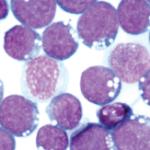ACR CONVERGENCE 2020—Held Nov. 5–9, the ACR’s first fully virtual annual meeting is a wrap, but that doesn’t mean it’s too late to catch the highlights. Dozens of research abstracts on various aspects of lupus were presented during the fully virtual event, and David S. Pisetsky, MD, PhD, professor of medicine and immunology at Duke…





